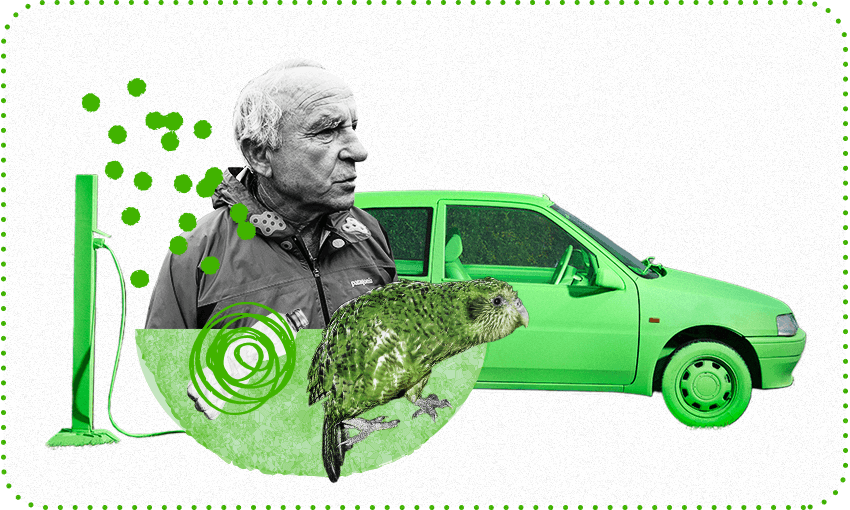For the final Future Proof of 2022, Ellen Rykers looks back at some of the year’s climate and environment highlights.
For more reasons to be hopeful in 2023 (hopefully), subscribe to Future Proof here:
1. The kākāpō population boomed
The population of the world’s heaviest parrot reached a 50-year high of 252 this year, after the summer breeding season produced a bumper crop of 55 chicks. Stay tuned for the next breeding season (it occurs every couple of years when rimu trees produce a lot of fruit) as the Kākāpō Recovery team are planning to set up a kākāpō nest livestream!
2. Progress made on the plastic problem
Aotearoa said bye-bye to several hard-to-recycle and single-use plastic items this year. In March, 175 countries agreed to draw up a legally binding UN treaty by 2024 with the aim of ending plastic pollution. Negotiations for the treaty are underway.
3. An important win at Cop27
While the latest UN climate summit may have overall been “bitter, divisive and chaotic”, the marathon negotiations did produce an historic agreement to establish a “loss and damage fund” for small nations vulnerable to climate change. Such a fund was first called for more than 30 years ago, by the small Pacific nation of Vanuatu.
4. Climate plans galore
This year saw a number of important climate plans released by the government, including the National Adaptation Plan and Emissions Reduction Plan. Auckland Council released an ambitious transport plan, aiming to reduce emissions. These are important first steps for change – the will is there, the kōrero is there, and now we just need to follow up with some action!
5. We fell in love with EVs
New Zealanders are keen on electric vehicles, as another big year of EV sales draws to a close. In 2014, there were only around 100 registered EVs in New Zealand. Now there are more than 13,000.
6. Predator-free aspirations continued to shine
We’re pretty bloody good at getting rid of invasive pests from islands – and in fact a study published this year found that New Zealand leads the world in island pest eradications. Now, we have our sights set on our third biggest island, Rakiura, with an epic plan to remove possums, rats, feral cats and hedgehogs.
7. Patagonia’s billionaire founder gave away his company
In September, the rock-climbing activist founder of outdoor clothing company Patagonia, Yvon Chouinard, “gave away his company” to a non-profit to ensure that all profits would go towards combating the climate crisis. The company is worth $3 billion. Across the ditch in Australia, billionaire Mike Cannon-Brookes has staged “a climate coup” by investing in Australia’s largest emitter, AGL Energy, and getting four new directors installed on its board. His endgame is to accelerate Australia’s decarbonisation, shifting AGL away from coal and toward renewables.


